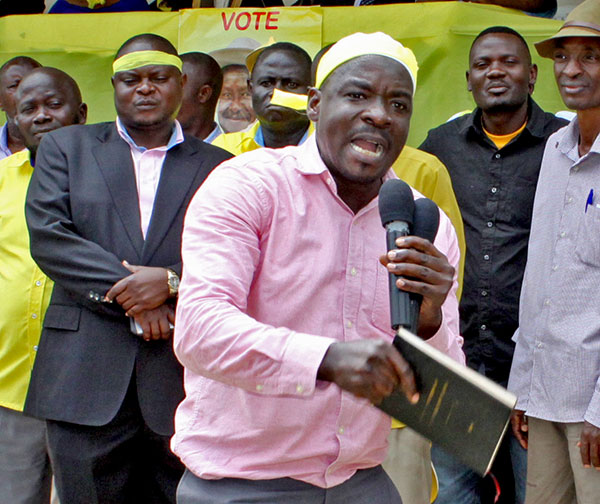
To protect himself, Kayihura set out to use the police to break down incessant opposition protests in Kampala and elsewhere. Indeed, although the opposition has been Kayihura’s bitterest enemies, indirectly they have been his allies.
The more they hated him and campaigned for his removal, the more Museveni felt the IGP was effective and kept renewing his contract, making him the longest serving IGP in Uganda’s history.
But because of the favour he enjoyed from the president and also because of the power he wielded, many inside the security and political establishment in Uganda wanted his position.
For years, they have been fighting hard to clip his wings and cut down his power. But Museveni had remained steadfast in his support of his IGP. Yet it is apparent from the recent crackdown on “crime” in Kampala that Museveni has dropped Kayihura. What has changed?
Kayihura’s success appeared to walk hand in hand with his doom.
Some analysts claim that Kayihura’s problem is that while he became very successful dealing with the opposition, he appeared to fail miserably at dealing with crime.
Knowing that the city is teeming with hundreds of thousands of unemployed and frustrated youth always ready to protest, Kayihura adopted a policy of counter political mobilization by coopting some of these youth.
He infiltrated these groups, recruiting many to his side and turning others into his agents inside the opposition camp. This way, whenever the opposition is plotting protest, Kayihura is tipped off, well in advance. This is the strategy Kayihura has used to cripple the opposition in Kampala, insiders claim.
To make it more effective, Kayihura facilitated the formation and growth of Boda Boda 2010. As an organized force, it was easy to mobilize quickly and deploy. Indeed, many times there is a protest in Kampala and police gets overwhelmed, police would call in the group to help.
This strategy is neither new nor is it unique to Uganda, some of Kayihura’s handlers claim. For the NRM, it has been a long and tested strategy not only in combating urban protests but also in containing armed rebellion. Thus whenever the government has faced a challenge, it has made the civilian population part and parcel of the defense of the government.
For example, they claim, while fighting rebellion in Acholi, the government recruited a civilian militia called Home Guards. In Teso, they created the Arrow Boys. In Western and Central Uganda, they created Local Defense Units. The NRM has also created many vigilante groups like Civic Defence Team, Kalangala Action Plan of Kakoza Mutale, Popular Intelligence Network (PIN) etc. All too often, these groups have relied on hardened criminals for leadership.
But by its very nature, this strategy of using vigilantes to contain protests comes with inevitable costs. For a long time, it appears Museveni and his handlers were willing to keep a blind eye on the activities of these groups even amidst public outcry.
Many people have accused Boda Boda 2010 of meting torture on them, confiscating their boda bodas and its leader of abusing access to power.
Part of this, insiders say, is down to the fact that Kayihura listened a lot to Kitatta. This gave Kitatta confidence to even interfere in police work. Police officers were afraid to act against Kitatta when he was in the wrong because they felt he would report to Kayihura. Some claim they were instances when Kayihura would easily transfer officers on or put them on katebe because Kitatta had complained. So this gave Kitatta power over police.
To this extent, critics say Kayihura subordinated a professional state security institution to an unruly militia instead of vice versa.
Secondly, critics also claim, Kayihura’s management style denied him the necessary feedback loops that would have led him to create the necessary distance between himself and Kitatta; and then ensure police officers could rein in Kitatta. But Kitatta had also grown big with direct access to the President.
Insiders say in meetings of the National Security Council, the highest security body that brings together security chiefs from different bodies, Kayihura was often warned of rogue elements in police but did nothing.
 The Independent Uganda: You get the Truth we Pay the Price
The Independent Uganda: You get the Truth we Pay the Price


